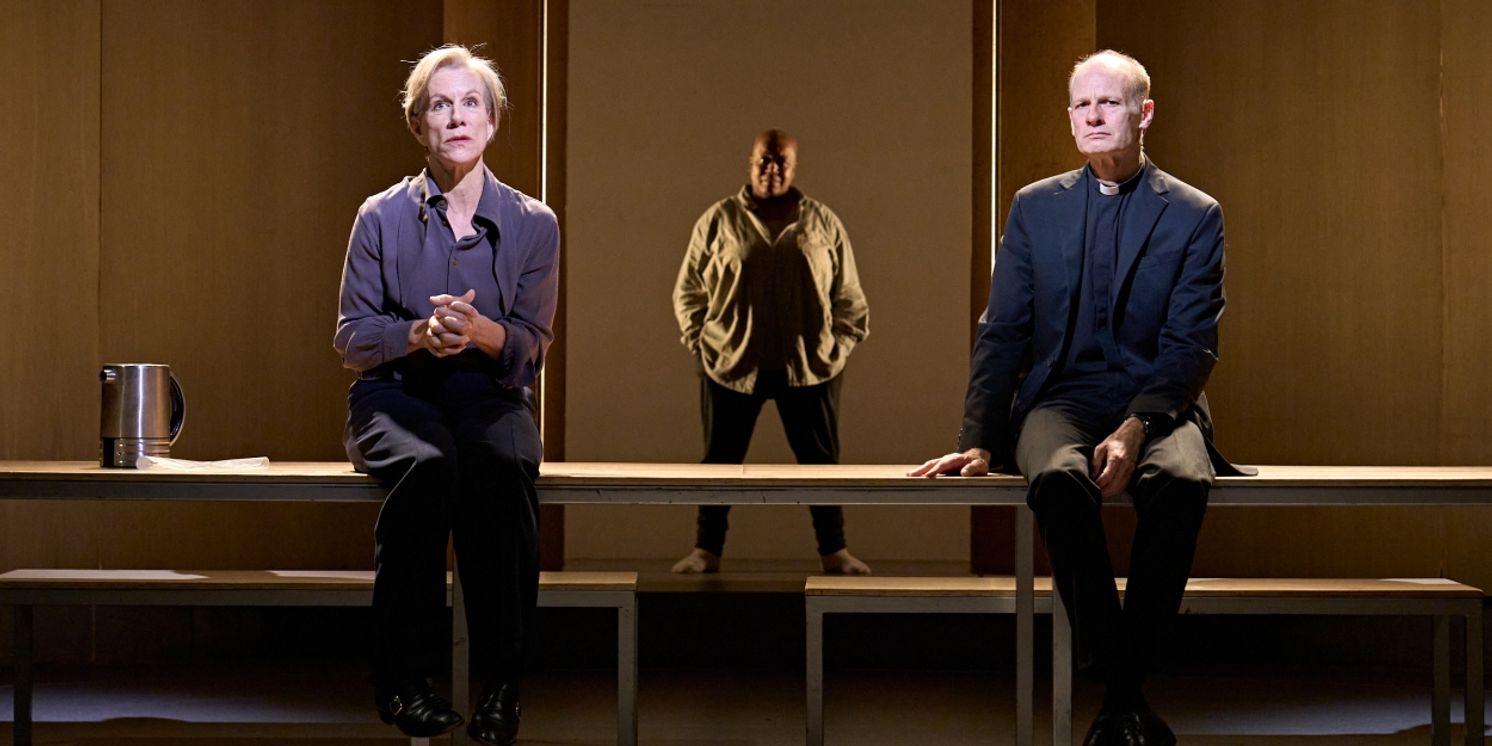Review: THE DOCTOR, Duke of York's Theatre
Robert Icke's extraordinary play about identity politics transfers to the West End

![]() There is a kettle on stage for much of Robert Icke's The Doctor. It is one of the few props in this loose adaptation of Arthur Schnitzler's 1912 play Professor Bernhardi, which was first staged at the Almeida Theatre in 2019 and now receives its delayed revival in the West End. And the kettle's conspicuousness is not for nothing: like the water boiling in it, Icke's medical ethics drama gradually increases in heat and reaches a point of scorching intensity, leaving no one unscathed.
There is a kettle on stage for much of Robert Icke's The Doctor. It is one of the few props in this loose adaptation of Arthur Schnitzler's 1912 play Professor Bernhardi, which was first staged at the Almeida Theatre in 2019 and now receives its delayed revival in the West End. And the kettle's conspicuousness is not for nothing: like the water boiling in it, Icke's medical ethics drama gradually increases in heat and reaches a point of scorching intensity, leaving no one unscathed.
At the magnetic centre of The Doctor is Dr Ruth Wolff, a renowned physician and the founding director of a medical institute specializing in Alzheimer's. Portrayed brilliantly by Juliet Stevenson, Wolff is a formidable presence whose pedantry about everyday language overlaps with a pointed concern with medical protocol. Stevenson's rendering of this steely yet sympathetic personality is a masterclass in acting. As her character finds herself in the midst of a major controversy - what she can't help but call a storm in a teacup - Stevenson communicates her tumultuous descent into infamy with shattering clarity.
The controversy in question is sparked when Wolff prevents a Catholic priest from entering the room of a fourteen-year-old patient on her deathbed and administering her last rites. Wolff's Jewish background and the priest's racial identity as a black man come together in the public eye as potent ingredients for a scandal. The Doctor traces the explosion of this encounter into a wide-ranging, free-for-all debate between science and faith, which also grapples with matters of patient choice, unconscious bias, and identity politics.
Icke's intelligent play offers a deeply thought-provoking and moving take on the instant weaponisation of identity markers in our contemporary moment, especially when those markers enter intersectional relationships with one another. Wolff claims throughout that she doesn't go in for badges or groups, but her society very much does. Her declared prioritisation of her identity - and responsibilities - as a doctor fails to accord with the optics of the situation as construed by the wider public, including some of her closest colleagues. A witch-hunt for the digital age rears its head.
Putting the actors' own identities in direct dissonance with those of their respective characters, Icke's endlessly surprising dramaturgy presents this maelstrom in razor-sharp style. His excellent cast depicts the mounting crisis with trenchant force. Christopher Osikanlu Colquhoun, Doña Croll, and Naomi Wirthner are all flawless as fellow doctors who assume divergent positions in response to Wolff's decisions. John MacKay does double duty as the priest and the dying girl's father, delivering effectively contrasting portrayals. In the former part, his scene near the end with Stevenson particularly compels with its graceful reflectiveness.
Along the way, scenes of Wolff's professional upheaval are compellingly interspersed with those from her personal life. In some of these, we see Wolff bonding with a neighbouring teen (Matilda Tucker, impressive), whose initially ambiguous gender identity helps us see a different aspect of Wolff's care-giving. Also hovering through the play is the spectral figure of Wolff's romantic partner Charlie (Juliet Garricks), the details of whose story are slowly revealed to powerful effect.
Icke's long-time collaborator Hildegard Bechtler's minimalist design enables a long table and multiple benches, situated on a revolving platform, to evoke a range of settings. Natasha Chivers's gently fluctuating lighting and Tom Gibbons's forceful sound design enhance the production's lean aesthetic with bravura. Onstage drummer Hannah Ledwidge accompanies the unfolding drama with her percussive rhythms, injecting an atavistic feel into the proceedings.
Three years on, The Doctor remains a dazzling tour de force that captivates both minds and hearts with its ingenious examination of a complex character in a complex world. From start to finish, this is theatre at its finest - and a renewed testament to Icke's exceptional talent as a writer and director. Unmissable.
The Doctor is at the Almeida Theatre until 11 December
Photo credit: Manuel Harlan
Reader Reviews

Videos

